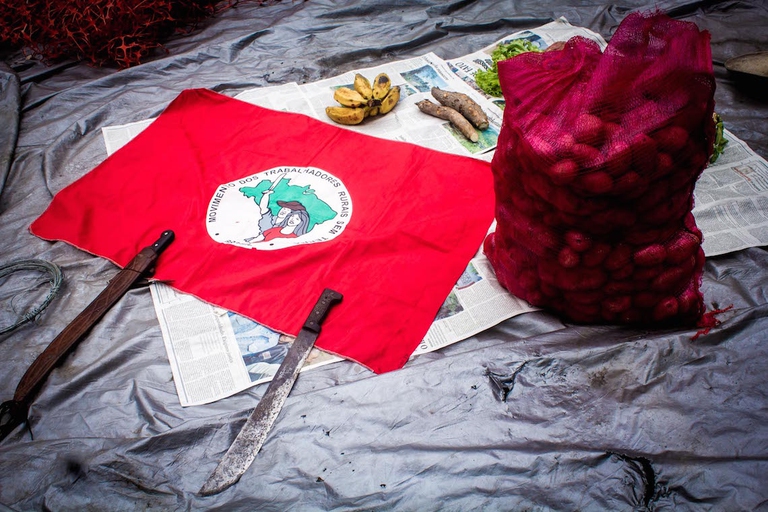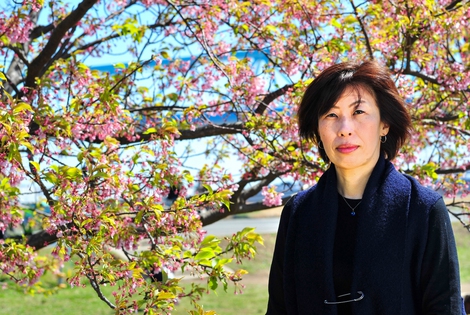
Three people putting the protection of the planet before themselves. Three powerful stories from Latin America, the deadliest region for environmental activists.
Syngenta AG, the world’s third largest producer of biochemically-engineered foods, has been found guilty of murder by Judge Pedro Ivo Moreiro of the Civil Court of the municipality of Cascavel in the southern Brazilian region of Paraná. The announcement of the ruling was made public on the 17th of November. The court has ordained that
Syngenta AG, the world’s third largest producer of biochemically-engineered foods, has been found guilty of murder by Judge Pedro Ivo Moreiro of the Civil Court of the municipality of Cascavel in the southern Brazilian region of Paraná. The announcement of the ruling was made public on the 17th of November. The court has ordained that the Swiss-based agrochemical company pay compensation to the family of the deceased 34 year-old Landless Workers Movement (MST) activist Valmir Mota de Oliveira, known as Keno, as well as to those who were injured during the course of vicious exchanges that took place on the 21st of October 2007.
In the weeks leading up to the violence Keno and others activists of the Via Campesina, an international peasant movement of which the MST is a member, had organised protests and land occupations to protest the vicinity of Syngenta’s Seed Research Farms to Iguazú National Park, a UNESCO World Heritage Site. They were also protesting a number of land acquisitions Syngenta made that had left many farmers unemployed. It was during one such peaceful occupation that the private security firm NF security, contracted by Syngenta, attacked 150 unarmed protestors. Thirty gunmen arrived in a black van and began firing shots at Keno and the rest of the group, with five people seriously injured before Keno was eventually killed.
Syngenta claimed that they could not be held responsible for the actions of the security contractors during the confrontation, to which Judge Pedro Ivo Moreiro responded: “To refer to what happened as a confrontation is to close one’s eyes to reality. There is no doubt that, in truth, it was a massacre disguised as repossession of property.”
The ruling is being heralded by many as a symbolic moment in the fight against human rights infringements by transnational corporations such as Syngenta, but sadly it is no such thing. Though the company will be forced to pay compensation, the original purpose of Keno’s protests appears to have been eclipsed by the ensuing turmoil.
Most worrying is the manner in which the government of then Brazilian President Luiz Inácio Lula da Silva changed the country’s law a mere month after Keno was murdered, reducing the previously required ten kilometre buffer zone between agrochemical facilities and national parks to a meagre 500 metres. A limit well below the seven kilometres recommended by a study published in Environmental Sciences Europe and which greatly increases the risk of contamination. The law change enabled Syngenta to skirt a $500,000 fine it had been issued with a year earlier due to having infringed the previous regulations: the very transgression Keno had been protesting.
Though the exact amount that Syngenta must pay in compensation hasn’t been disclosed, the suspicion remains that the Swiss corporation, worth more than $40 billion dollars, will not be terribly affected by the events that took place on the 21st of October eight years ago. In fact, it doesn’t seem far-fetched to assume that protests are likely to continue, environmental pleas to be ignored and, perhaps, the stage is set for this macabre tale of murder to repeat itself once more.
Siamo anche su WhatsApp. Segui il canale ufficiale LifeGate per restare aggiornata, aggiornato sulle ultime notizie e sulle nostre attività.
![]()
Quest'opera è distribuita con Licenza Creative Commons Attribuzione - Non commerciale - Non opere derivate 4.0 Internazionale.
Three people putting the protection of the planet before themselves. Three powerful stories from Latin America, the deadliest region for environmental activists.
Influential scientist, activist and author Vandana Shiva fights to protect biological and cultural diversity, and against GMOs.
Kimiko Hirata has blocked 13 new coal plants in Japan, but she hasn’t done it alone. The 2021 Goldman Prize winner tells us about her movement.
The Goldman Environmental Prize, the “green Nobel Prize”, is awarded annually to extraordinary activists fighting for the well-being of the planet.
We talk to Shaama Sandooyea, activist and marine biologist from Mauritius onboard Greenpeace’s Arctic Sunrise ship in the heart of the Indian Ocean.
Arrested for supporting farmers. The alarming detention of Disha Ravi, a 22-year-old Indian activist at the fore of the Fridays for Future movement.
Water defender Eugene Simonov’s mission is to protect rivers and their biodiversity along the borders of Russia, China and Mongolia.
Chibeze Ezekiel, winner of the 2020 Goldman Environmental Prize for Africa, is fighting to guide new generations towards a renewable future.
Leydy Pech, winner of the 2020 Goldman Environmental Prize for North America, is the beekeeper who defended Mexican Maya land against the agro-industry.










